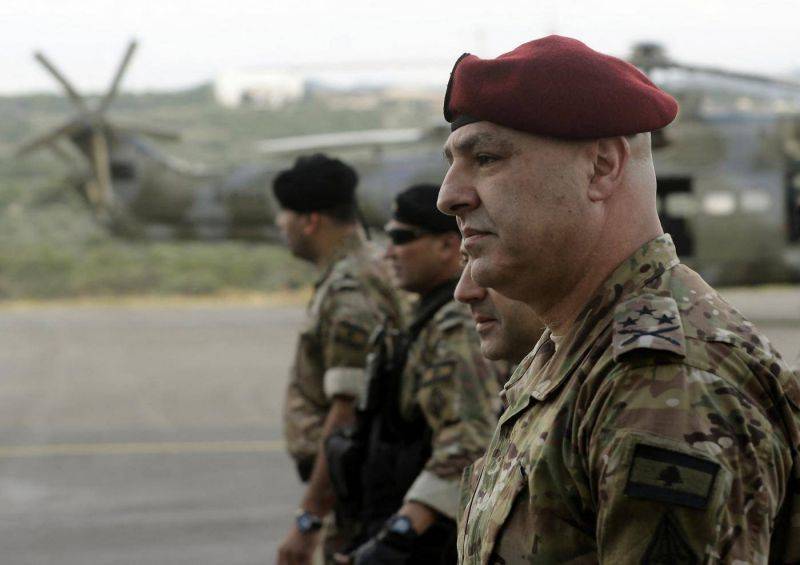
Army commander Gen. Joseph Aoun has warned that his soldiers are “starving” and that eroded salaries could push the institution to “implosion.” (Credit: AFP)
Want to get the Morning Brief by email? Click here to sign up.
Donor countries will convene today to raise urgently needed support to meet the Lebanese Army’s basic needs. Co-hosted by France, Italy and the United Nations, the online international conference will seek to drum up essential aid such as food and medical supplies in order to sustain the military, which like Lebanon’s other state institutions has been hit hard by the economic crisis. Army commander Gen. Joseph Aoun has issued stark warnings that his soldiers are “starving” and that eroded salaries could push the institution to “implosion.” A soldier’s average salary is now worth less than $80 because of the lira’s depreciation; many soldiers have reportedly taken up side jobs to provide for their families. Meanwhile, the army has been forced to stop serving meat to on-duty soldiers due to funding shortfalls. The conference comes after the army has already received hundreds of tons of food aid from other countries, including France, Oman, Turkey and, most recently, Egypt.
Banque du Liban continues to flood the market with the national currency, but at a slower pace. BDL’s latest interim balance sheet shows an additional LL478.6 billion in circulation during the first half of June, putting the total at more than LL40 trillion. The change is significantly less than the average biweekly increase this year of LL896 billion. Meanwhile, depositors have faced tightened restrictions on cash lira withdrawals from commercial banks, and BDL has been selling dollars in exchange for lira through Sayrafa, its currency exchange platform. Altogether, the policies reflect the central bank’s efforts to stabilize the lira’s market value by slowing the rise in the number of banknotes in circulation. Additionally, BDL’s foreign currency assets fell by about $260 million since the beginning of this month. This drop means BDL has fewer dollars to subsidize essential imports.
For the second time in a month, labor unions across Lebanon will strike in protest of worsening living conditions. With lira-denominated salaries severely devalued as the local currency continues to trade at just over LL15,000 to the US dollar on the parallel market, public sector employees, commercial banks and members of the public transport drivers’ syndicate, the water suppliers’ syndicate and several other syndicates have announced their intention to participate in today’s general strike. The head of the General Confederation of Lebanese Workers, Bechara al-Asmar, has asked unions to gather at the Labor Union’s headquarters in Corniche al-Nahr, Beirut, at 11:30 a.m. Three political parties — the Free Patriotic Movement, the Future Movement and the Amal Movement — also announced that they would participate, drawing criticism from the head of the National Federation of Trade and Employees’ Unions, Castro Abdallah, who asked, “Are they protesting against themselves?”
MPs formed a new subcommittee to examine two ration card proposals that would replace Lebanon’s faltering essential goods subsidies scheme. The subcommittee will compare and evaluate the respective plans of outgoing Prime Minister Hassan Diab and FPM leader Gebran Bassil, MP Yassine Jaber, the subcommittee’s head, told L’Orient Today. Diab has proposed handing out an average of $137 monthly to 750,000 of the country’s poorest families at a cost of about $1.24 billion for the first year. Bassil said his plan aims to transfer $100 dollars per month to every Lebanese family whose bank deposits fall under a specific threshold that has not yet been specified. The central bank would have to secure about $3 billion to fund the program, Bassil said, adding that it would have no choice but to dip into its mandatory reserves. The subcommittee will convene on Friday to examine the proposals, Jaber said.